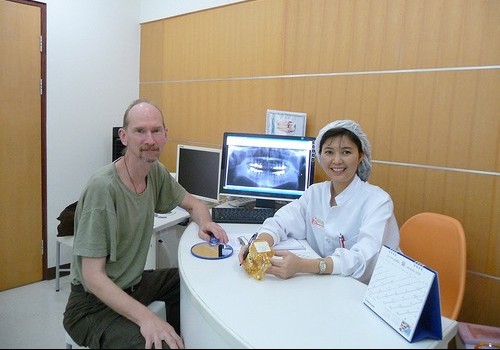
Get Professional Help
The fundamental nature of alcoholism is that any kind of "crutch" that involves consuming some other substance, for instance, the anti-alcohol drug Antabuse (disulfiram), for instance, undermines the self-confidence needed to quit drinking for good, but getting help from another human being usually increases it. Not everyone who wants to stop drinking absolutely, positively has to see a mental health professional, but short-term therapy usually helps. There are patterns of relating to people and key relationships that will change when drinking stops. There are long-term effects on the liver and brain from years of drinking that may need at least short-term medical intervention to bring back to normal.
- Important notification about information and brand names used in this slideshow!
- Photo courtesy of Robbi Baba by Flickr : www.flickr.com/photos/robbibaba/3242960389/
- Schaumberg K, Kuerbis A, Morgenstern J, Muench F. Attributions of change and self-efficacy in a randomized controlled trial of medication and psychotherapy for problem drinking. Behav Ther. 2013 Mar. 44(1):88-99. doi: 10.1016/j.beth.2012.07.001. Epub 2012 Jul 24.
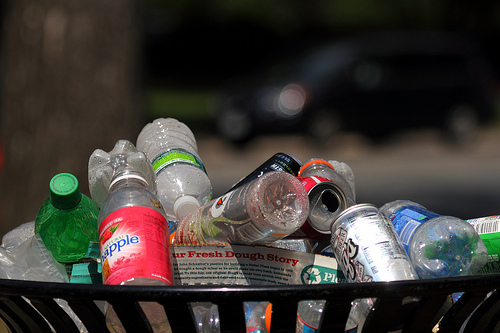
Throw Empty Bottles And Cans Into the Trash
Out of sight, out of mind, the old adage tells us. This is particularly true for people who want to stop drinking, or at least to cut down. The sight of empty bottles and cans is especially likely to trigger urges to drink among (1) men, (2) binge drinkers and (3) people who have family members who are binge drinkers or who live with other binge drinkers. Studies at the Department of Psychiatriy at the Yale University School of Medicine have even found that the brain rewires itself to respond to the labels on alcohol bottles with an insatiable urge to drink. Keeping evidence of alcohol out of sight makes abstinence easier.
- Important notification about information and brand names used in this slideshow!
- Photo courtesy of Mr. T in DC by Flickr : www.flickr.com/photos/mr_t_in_dc/5919993850/
- Dager AD, Anderson BM, Stevens MC, Pulido C, Rosen R, Jiantonio-Kelly RE, Sisante JF, Raskin SA, Tennen H, Austad CS, Wood RM, Fallahi CR, Pearlson GD. Influence of alcohol use and family history of alcoholism on neural response to alcohol cues in college drinkers. Alcohol Clin Exp Res. 2013 Jan. 37 Suppl 1:E161-71. doi: 10.1111/j.1530-0277.2012.01879.x. Epub 2012 Oct 18.
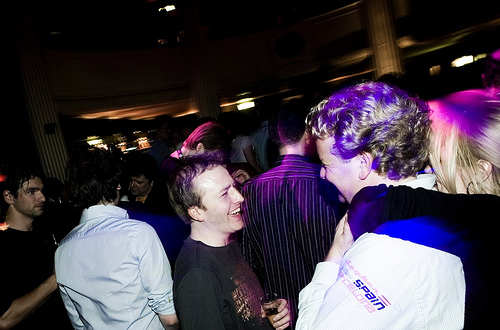
Avoid Places Where Lots of Drinking Takes Place
Along with the general principle of "out of sight, out of mind," it is also helpful to avoid people who encourage drinking. If your old drinking buddies can't get together with you without urging you to drink, it may be necessary to make the hard choice to get new friends. Men, both heterosexual and homosexual, tend to be especially susceptible to urging to drink by their sex partners. Women tend not to be vulnerable to urging by romantic partners to drink, but rather are equally responsive to "bad influences" by men and women regardless of whether or not the relationship is sexual.
- Important notification about information and brand names used in this slideshow!
- Photo courtesy of The Next Web Photos by Flickr : www.flickr.com/photos/thenextweb/2402792925/
- Yang C, Davey-Rothwell M, Latkin C. "Drinking buddies" and alcohol dependence symptoms among African American men and women in Baltimore, MD. Drug Alcohol Depend. 2013 Feb 1. 128(1-2):123-9. doi: 10.1016/j.drugalcdep.2012.08.016. Epub 2012 Sep 19.
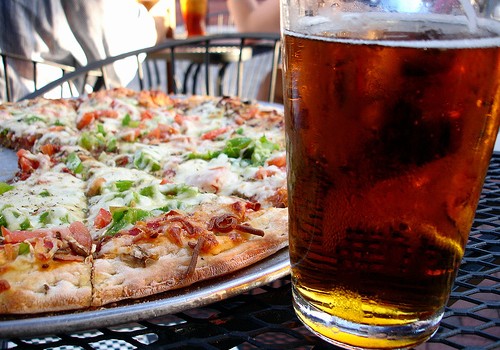
Eat Before You Drink
If your objective is not to avoiding drinking altogether but rather to avoid getting drunk, it helps to eat before you drink. The presence of food in your stomach slows down the rate at which alcohol can travel to your small intestine, where it is absorbed into the bloodstream. There are certain kinds of foods that are especially helpful for avoiding sudden intoxication. Soup, oddly enough, is especially helpful, as long as it has been slow-simmered. Instant soup and soup from a can won't work; grandma's chicken soup will. Acidic foods and fatty foods likewise slow down the passage of alcohol into the bloodstream. Food has to be consumed before you drink; eating these foods after you drink won't make you any less drunk and won't cure a hangover.
- Important notification about information and brand names used in this slideshow!
- Photo courtesy of Lisa B. by Flickr : www.flickr.com/photos/bunchofpants/159648749/
- Buchholz LJ, Crowther JH, Olds RS, Smith KE, Ridolfi DR. Are restrained eaters accurate monitors of their intoxication? Results from a field experiment. Addict Behav. 2013 Apr
- .38(4):1966-9. doi: 10.1016/j.addbeh.2012.12.008. Epub 2012 Dec 22. PMID: 23380492.

Stay Hydrated
Another tip for drinkers who don't want to get drunk is to be sure to stay hydrated. Drink plenty of water, the full recommended 8 cups (about 2 liters) per day. This is especially necessary if you consume a lot of salt or salty foods. Your kidneys will keep your bloodstream's sodium levels nearly constant by removing salt into urine. The kidneys do not, however, perform the same task with regard to alcohol. The more you have to urinate, the less water there is your bloodstream to dilute alcohol, so you get drunker faster. Drinking water is not enough to keep you sober, but it helps.
- Important notification about information and brand names used in this slideshow!
- Photo courtesy of DFID - UK Department for International Development by Flickr : www.flickr.com/photos/dfid/5951436978/
- Rister, Robert S. Healing without Medication. Basic Health Publications, 2003.
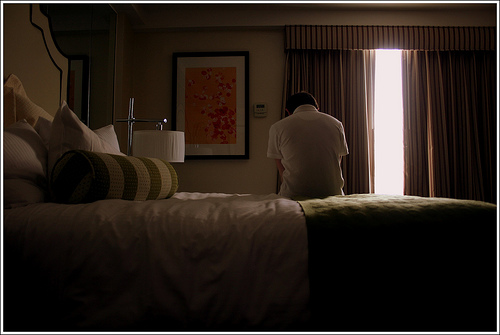
Stick to Your Goals, Don't Let Guilt Knock You Off Your Path
Just about everyone who indulges in binge drinking does something regrettable or embarrassing. These events can result in a condition of guilt, in which the predominant feeling is "I did something wrong," or shame, "I am a bad person." Both guilt and shame are harmful to long-term recovery, but the greater damage is done by shame. Don't let alcohol addiction define who you are. You are more than your drinking habits, whether they are good or bad. The most important step to a healthy attitude even if you have an unhealthy relationship with the bottle is to accept yourself for what you are--and to make every effort to avoid the events that cause you guilt or embarrassment after the fact. As long as you are trying, however, there is no reason for shame.
- Important notification about information and brand names used in this slideshow!
- Photo courtesy of Robby McKee by Flickr : www.flickr.com/photos/robhardingii/2606164515/
- Scherer M, Worthington EL, Hook JN, Campana KL. Forgiveness and the bottle: promoting self-forgiveness in individuals who abuse alcohol. J Addict Dis. 2011 Oct. 30(4):382-95. doi: 10.1080/10550887.2011.609804.
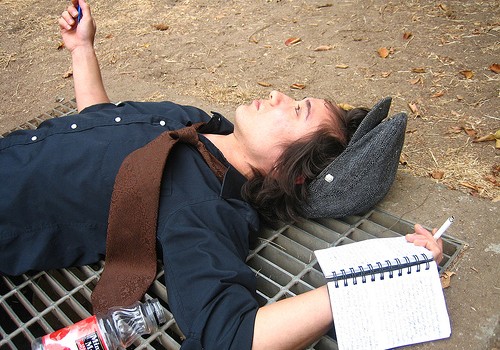
Don't Get Stuck In A Rut
Changing your routine, taking charge of your circumstances, turning of the TV and going out somewhere alcohol-free, is sometimes just what you need to avoid excessive drinking. Many people drink because they are bored. It's easy to tell someone who drinks, "Get out and do something different!" but everyone who has a drinking problem knows that it takes a certain amount of steely determination to find something sufficiently interesting to do that there isn't a temptation to drink. It's hard to get out your rut. But when you do, you can take credit for your success, and you just might have some unexpected fun in the process.
- Important notification about information and brand names used in this slideshow!
- Photo courtesy of Mallory Elizabeth Grogan by Flickr : www.flickr.com/photos/malleycat/1952668323/
- www.brighteyecounselling.co.uk/alcohol-drugs/drinking-cope-with-boredom/

Take Supplemental Vitamin B
Psychiatrist and alcoholism expert Dr. Ken Blum, a recently retired professor of medicine from the University of Texas Health Sciences Center in San Antonio, advises all alcoholics in recovery to take a vitamin supplement containing pyridoxine, the B vitamin also known as B6. This vitamin is an essential ingredient in the chemical process the brain uses to make the anti-inflammatory, antidepressant, feel-good-without-booze chemical s-adenosylmethionine, which is also known as SAM-e. It's not necessary to take megadoses of B6 or any other B vitamin. A "complete B" supplement once a day is enough. Just be sure that the supplement contains folic acid (or folate) and vitamin B12, which complement the action of B6 in the brain.
- Important notification about information and brand names used in this slideshow!
- Photo courtesy of Masahiro Shibusawa by Flickr : www.flickr.com/photos/cinefil_/62385783/
- Yarnell S, Oscar-Berman M, Avena N, Blum K, Gold M. Pharmacotherapies for Overeating and Obesity. J Genet Syndr Gene Ther. 2013 Apr 1
- 4(3):131.

Learn How To Meditate
Meditation is one of the most useful tools for avoiding the anxiety that almost always comes along after cutting back on alcohol. Meditation won't necessarily help you avoid drinking. That comes from inside you, usually with the help of professional counseling or a support grew. But meditation will help you deal with the emotional upset you became accustomed to drowning with drink. While it is certainly possible to learn meditation from a master, it's not necessary. Simply picking a quiet place where you will not be disturbed for 15 to 20 minutes and repeating the same phrase over and over will open your mind to relaxation. Don't worry if your mind wanders or if upsetting thoughts creep into your session. That's normal. It's the effort that counts.
- Important notification about information and brand names used in this slideshow!
- Photo courtesy of Ian Burt by Flickr : www.flickr.com/photos/oddsock/3701520219/
- Miller S. How mindfulness based stress reduction can reduce anxiety after alcohol abstinence. Nurs Times. 2010 Aug 10-16. 106(31):22. No abstract available.
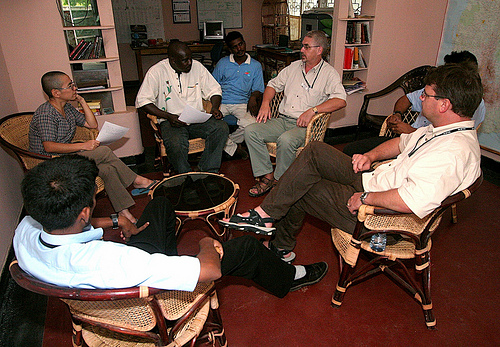
Join A Support Group
Millions of alcoholics in recovery join the mutual support group Alcoholics Anonymous (AA). In the United States, over 22 million people have been members of AA, and over 8 million people attend AA now, the average member attending 76 meetings a year. Most people who turn to AA have multiple problems due to alcohol: 35% have been homeless in the year before they attend their first meeting, 55% have been arrested, and 40% have lost a job. There's no reason for shame at AA. Most people at meetings are in the same boat, and if you are the comparatively rare member whose life is in good order, you will have opportunities to help at least one other person as a sponsor even as you are sponsored.
- Important notification about information and brand names used in this slideshow!
- Photo courtesy of Nonviolent Peaceforce by Flickr : www.flickr.com/photos/nonviolentpeaceforce/5450843791/
- Strickler GK, Reif S, Horgan CM, Acevedo A. The Relationship between Substance Abuse Performance Measures and Mutual Help Group Participation after Treatment. Alcohol Treat Q. 2012. 30(2):190-210. Epub 2012 Apr 13.


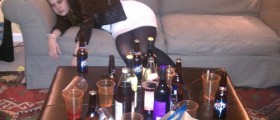




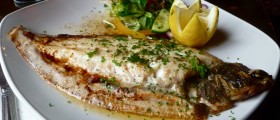


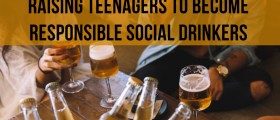
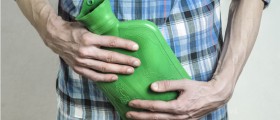

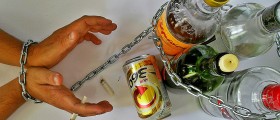

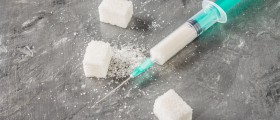
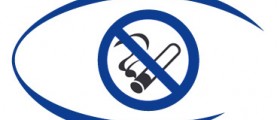
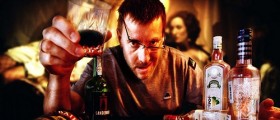
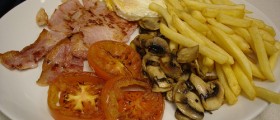
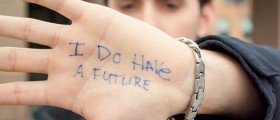



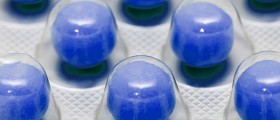
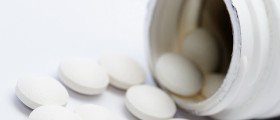
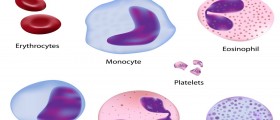
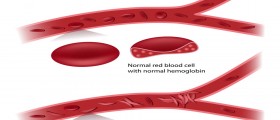
Your thoughts on this
Loading...